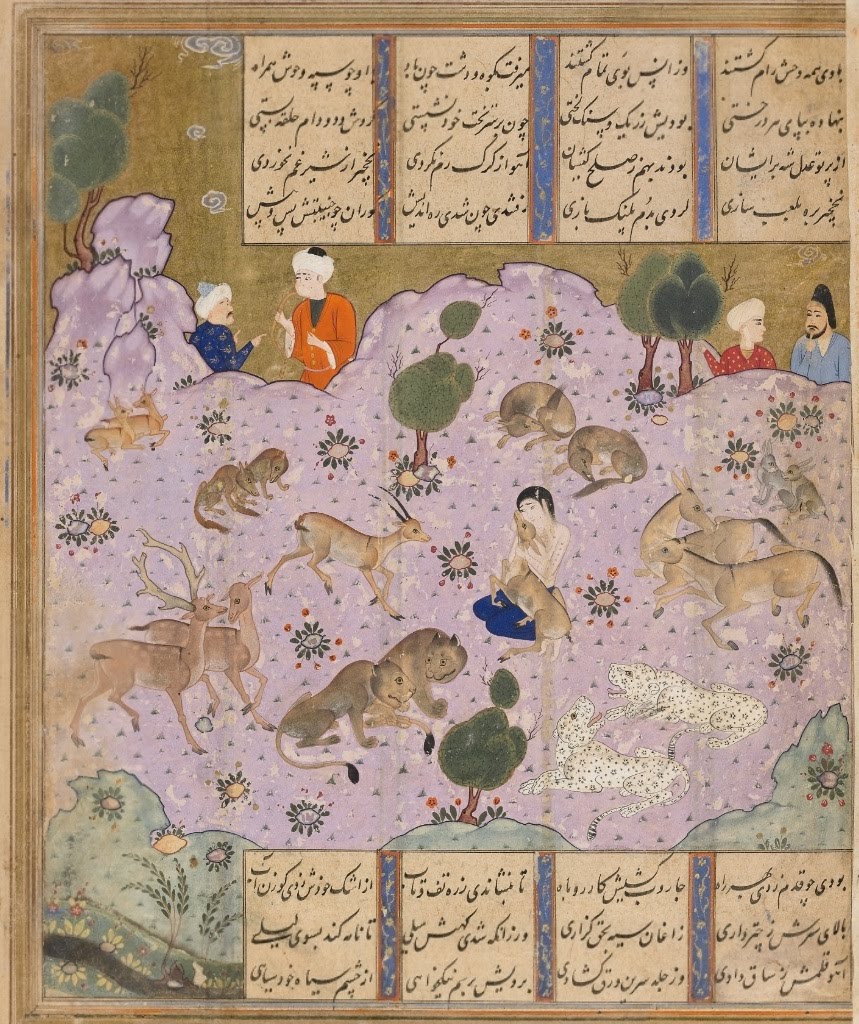Project Description
Layla and Majnun
Laylá and Majnun is a timeless love story sometimes compared to Romeo and Juliet, though it predates Shakespeare in oral tradition by more than 1,000 years. Today, it is still one of the most popular epics of the Middle East and Central Asia. The most popular version of this love story was penned by Nizami Ganjavi (1141-1209), who lived and died in Ganja, an ancient city in Azerbaijan where his shrine stands today. He wrote in Persian, as was the literary custom of the day. Majnūn, which means ‘possessed by spirits’ or ‘crazy’, was the name given to the semi-legendary seventh-century Arab poet Qays ibn Mulawwaḥ, after he reputedly became mad with love for Laylá, his cousin. He soon began composing poems about his love for her, mentioning her name often. When he asked for her hand in marriage, her father refused as it would be a scandal for Laylá to marry someone considered mentally unbalanced. Grief-stricken, Majnūn retreated to the desert, wild animals as his only companions. Laylá, in time, married a nobleman, but she remained devoted to Majnūn, making several thwarted attempts to meet him. Majnun’s family eventually gave up hope for his return and left food for him in the wilderness. He could sometimes be seen reciting poetry to himself or writing in the sand with a stick. Eventually Laylá died of a broken heart, and her obsessed beloved followed her to her grave, dying as he mourned at her tomb. In India it is believed that Layla and Majnun found refuge in a village in Rajasthan before they died. The ‘graves’ of Layla and Majnun are believed to be located in the Bijnore village near Anupgarh in the Sriganganagar district. According to rural legend there, Layla and Majnun escaped to these parts and died there. Hundreds of newlyweds and lovers from India and Pakistan, despite there being no facilities for an overnight stay, attend the village’s two-day fair in June. In the late 1960s, a friend of the English musician Eric Clapton gave him an English translation of the story of Layla and Majnun. Clapton subsequently wrote his bestselling song ‘Layla’, inspired by the female beloved of Nizami’s story.




